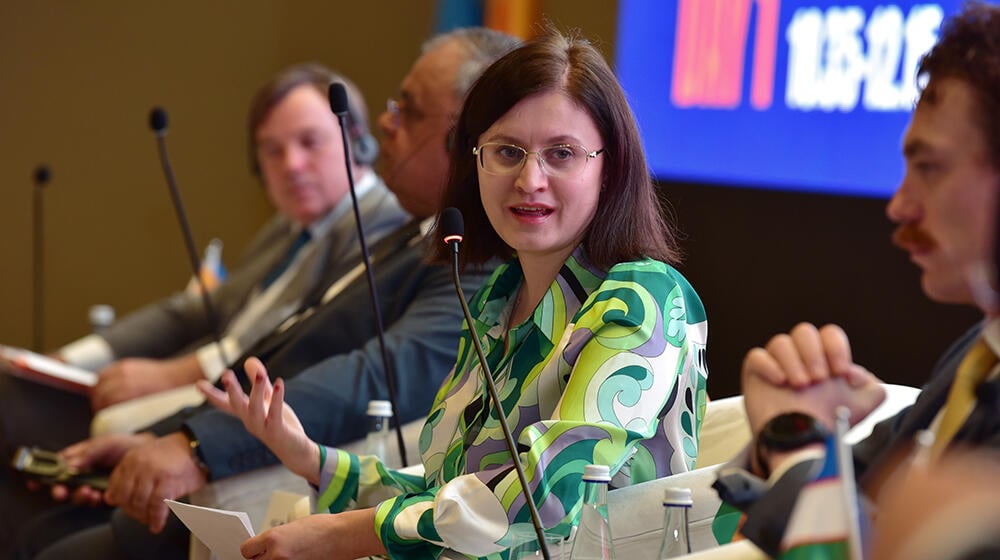Tashkent, 1 December 2023 - Through a strategic approach to policy-making, Uzbekistan and other countries in Central Asia can enhance their resilience and adaptability to demographic changes, turning challenges into opportunities for sustainable development, an international conference concluded.
The conference, titled "Sustainable Development Amid Demographic Changes: National and International Practices," was organized by the Senate of Oliy Majlis of the Republic of Uzbekistan, the Scientific Research Institute of Family and Women, and UNFPA, the United Nations Population Fund, in partnership with several UN agencies, international financial institutions, private sector partners, and academia.
“With the current age structure of the population, and a growing working-age population, Uzbekistan, like other countries in Central Asia, is in a prime position to reap the benefits of the demographic dividend,” said Florence Bauer, UNFPA Regional Director for Eastern Europe and Central Asia.
“With the right investments in people, infrastructure and technology, Uzbekistan’s young population can, given the right environment, be the engine for a prosperous future. Investing in human capital and unlocking the potential of women and girls is key to realizing the aspirations of national development strategies.”
Demographic change is one of the megatrends that shape our world and affect progress towards achieving the Sustainable Development Goals. The countries of Central Asia have high fertility rates and young and growing populations. At the same time, life expectancy is relatively low, especially among men, many Central Asians have left their countries to live and work abroad, and gender inequalities remain significant.
"Recent reforms have prioritized the well-being of citizens by addressing their needs, with a particular focus on enhancing healthcare, promoting active longevity, refining education system planning, and optimizing the labor market,” said Tanzila Narbaeva, Chairperson of the Senate of the Oliy Majlis of the Republic of Uzbekistan.
In line with the goals included in Uzbekistan's National Development Strategy for 2030, the conference brought together policymakers, researchers, civil society organizations, and other stakeholders to discuss the extent to which demographic intelligence has already been integrated into national, regional and sector policies, assess gaps in such efforts, and identify strategies for building demographic resilience in the face of changing population trends.
The conference discussed links between demographic change and the development of infrastructure, health, including ageing, education system planning, labor market, urbanization, and environment. The conference explored the potential opportunities that demographic change presents, such as the demographic dividend and the potential for innovation.
High-level government representatives spoke about projections and scenarios for the coming decades, key challenges, and policies aimed at addressing demographic change. Speakers stressed that policies must be evidence-based, people-centered, and comprehensive to be successful.
Sessions provided space for government agencies to present their vision and policy plans, and for international experts, researchers, civil society representatives, young people and people living with disabilities to voice their assessments and views about the quality and effectiveness of existing policies and make recommendations for change.
The conference resulted in the establishment of a platform for high-level officials and experts to engage in discussions on demographic resilience. It contributed to enhancing countries’ capacity to respond to demographic change, and promoted regional collaboration on population and development.
Through its Demographic Resilience Programme, UNFPA support governments in understanding the impact of population shifts on development, and help societies develop the skills, tools, political will and public support to manage demographic change so that they can mitigate potentially negative effects for individuals, societies, economies and the environment, and harness the opportunities that also come with it.
For more information, please contact:
Nazokathon Fayzullaeva, UNFPA, nfayzullaeva@unfpa.org, +998946888778


